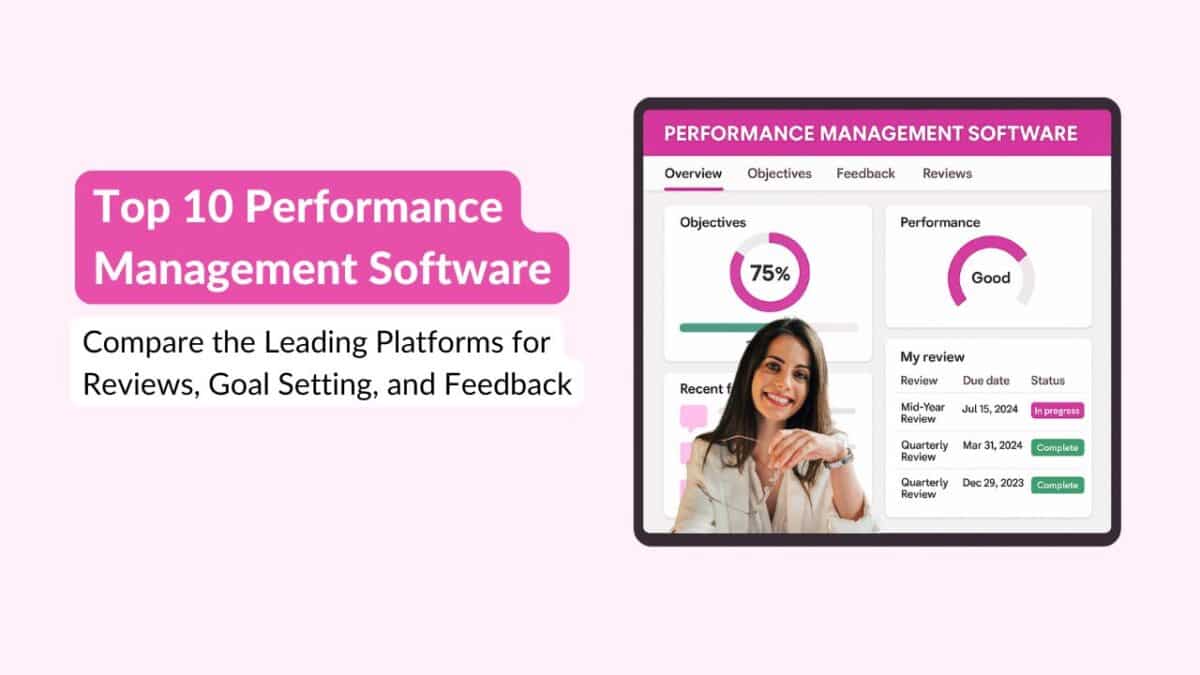What is the purpose of performance management? We all can agree that the main purpose is to assess employee performance and help them improve themselves in the future. But is this the only motivation behind conducting performance reviews from time to time? One of the reasons why performance management systems don’t work is that employee compensation is often tied to their performance reviews.
Ideally a performance management system should make sure that the workforce in an organization stays on the same page and receives guidance to perform better whenever possible. And when employees go out of their way to perform and improve organizational productivity, they should be rewarded and recognized. Instead, many companies end up doing something thats completely opposite.
HRs face the pressure to simplify and make the most out of their performance review systems. 58% of organizations rated their current performance management systems as “C Grade or below”. Why have our performance management systems become ineffective in a way that frustrates current employees and decreases their productivity? Here are a few reasons why the performance management system in most organizations could be broken even with the advent of technology today.
Annual Performance Reviews
No matter how advanced the technology is, and how many performance review software support frequent performance reviews, it always depends on the administration of the organization when to conduct performance reviews. Most organizations have performance reviews at the bottom of their list of priorities.
Reasons can be different for different managers but the motivation is same. No one wants to spend hours to evaluate someone’s performance. They do not focus on improving it. They often stick to annual performance reviews because: one, they happen only once an year and don’t require a lot of time; two, they can be easily tied with compensation and will help the management do their little saving based on employee performance.
This approach is far beyond broken, it is ancient. Annual performance reviews were actually designed so that both the employees and the company could benefit from them. But most HR leaders agree that this practice isn’t just ineffective but also damaging to the organization. It is not just because of the process itself but because of the way it is being carried out.
Ineffective Goal Setting
Goal setting is a very important aspect of performance reviews. If you cannot set effective goals for employees based on their job role in the department and in an organization, goal setting is of no use.
One of the most common problems that employees face during performance reviews, with regards to goal setting is that their individual goals aren’t aligned with department or organizational goals.
Also Read: Are Your Employees Setting Effective Goals?
A manager is responsible for setting effective and measurable goals for their team. One of the most popular approaches for goal setting is OKRs. OKRs stand for ‘Objectives And Key Results’. OKRs are a popular approach for goal-setting which allows employees to execute individual and organizational goals.
OBJECTIVES are something that you want to achieve, and KEY RESULTS are a measurable way to keep track of how close you are to achieve your objective.
Also Read: Top Companies That Adopted OKRs
Biased And Infrequent Feedback
When employees don’t receive honest or enough feedback, they have no scope of developing themselves. One of the most underrated problems with performance reviews is biased and infrequent feedback.
Did you know that 89% of HR leaders believe that frequent feedback, employee recognition and check-ins lead to organizational success. If you want to make the most out of employee feedback, it is very important to formalize and regularize the process. There could be many situations when you’re working with a team where giving and receiving feedback becomes vital for the team to function effectively.
Also read: Is Employee Feedback Really A Waste Of Time?
Neglecting Employee Engagement And Employee Development
Most performance management systems forget to focus on developing employees and help them excel in their careers. It is important to also focus on improving employee skills.
Employee engagement has a direct impact on things like productivity, customer retention etc. There are many ways to keep employees engaged. Employers normally like to praise and recognize employees or give them rewards. One other way of fostering employing engagement is to help build a learning culture in the organization, one that helps employees grow as individuals and also helps them develop professionally.
Also Read: The Role Of Regular Feedback In Continuous Learning
No 360 Degree Feedback
Another problem with performance management systems is that they do not utilize peer feedback.
When you receive feedback from your manager, it is based only on their perspective. A manager’s feedback usually depends on whether or not an employee reaches their set goal for a period of time. Peer feedback gives you feedback from various sources on various aspects of your work. Moreover, team members know how their peers work better than the managers do. Their solid feedback helps you realize the areas of your performance that specifically require improvement.
This practice allows team members to understand each others’ strengths and weaknesses better and collectively work towards improving the team productivity.
Engagedly is offering a suite of products part of its Remote Work Toolkit free to any organization, until Sept 30th, 2020.
The Coronavirus has affected the way we work today and for months to come. Unprecedented events require unprecedented measures. We at engagedly believe it is our responsibility as socially conscious corporate citizens to help equip organizations with additional tools and resources during this time of crisis.
Get in touch with us to know more about the free remote working tool-kit.
Get In Touch With Us
Author
Srikant Chellappa
CEO & Co-Founder of Engagedly
Srikant Chellappa is the Co-Founder and CEO at Engagedly and is a passionate entrepreneur and people leader. He is an author, producer/director of 6 feature films, a music album with his band Manchester Underground, and is the host of The People Strategy Leaders Podcast.





